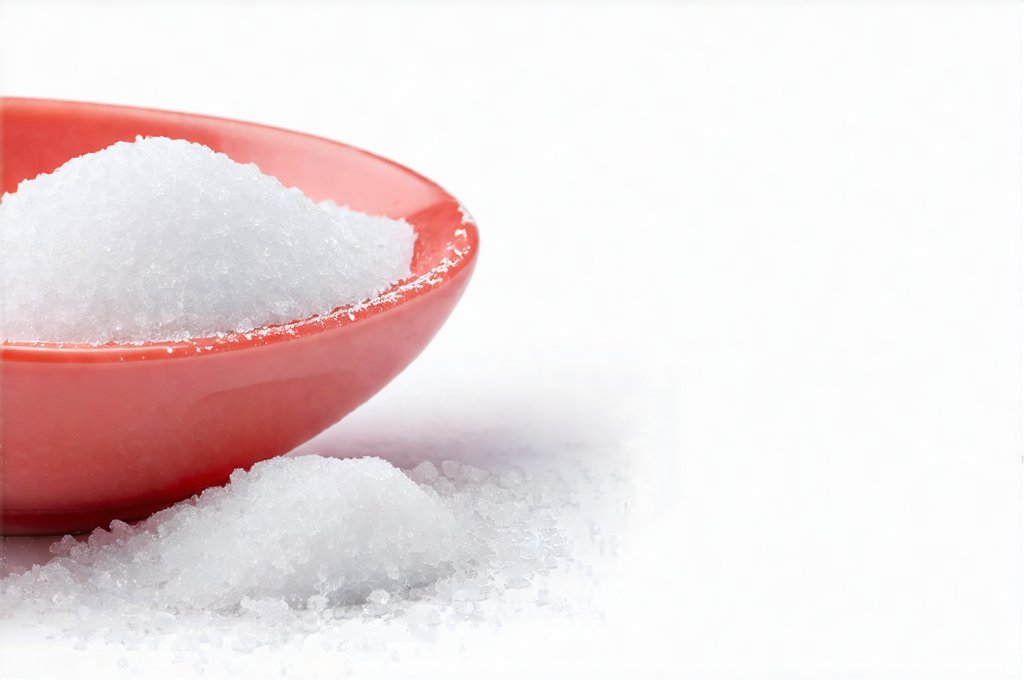The increasing awareness surrounding sugar intake has spurred a massive surge in the popularity of sugar substitutes – artificial sweeteners, sugar alcohols, and novel sweetening agents – all promising guilt-free sweetness. From diet sodas to yogurt, chewing gum to baked goods, these compounds are ubiquitous in modern food products marketed towards health-conscious consumers. While often touted as beneficial alternatives for weight management or diabetes control, the widespread consumption of these substitutes is revealing a less palatable side: gastrointestinal distress, and specifically, diarrhea. This isn’t necessarily about eliminating sweetness altogether; it’s about understanding the potential consequences of replacing one type of sugar with another that our digestive systems may struggle to process efficiently, leading to uncomfortable and disruptive symptoms for many individuals.
The human gut is an incredibly complex ecosystem, finely tuned over millennia to handle natural sugars found in whole foods. Introducing a plethora of synthetic or chemically altered sweeteners throws this delicate balance into disarray. These substitutes aren’t always fully absorbed during digestion, meaning they reach the large intestine relatively intact. It’s here that gut bacteria begin to ferment them, and this fermentation process can lead to gas production, bloating, cramping, and ultimately, diarrhea in susceptible individuals. The severity of these effects varies widely depending on the type of sweetener consumed, the amount ingested, individual sensitivity, and pre-existing digestive conditions. It’s a growing concern that deserves closer examination as reliance on sugar substitutes continues to increase across populations. Perhaps blood sugar fluctuations play a role in these sensitivities.
Understanding Sugar Substitute Categories & Their Impact
Sugar substitutes aren’t monolithic; they fall into several distinct categories, each with unique chemical properties and potential effects on the gut. Artificial sweeteners like saccharin, aspartame, and sucralose are intensely sweet compounds that provide virtually no calories. They’re designed to pass through the digestive system largely unabsorbed, which is part of their appeal for those managing weight or blood sugar. However, this lack of absorption also means they reach the colon in higher concentrations, providing more “food” for fermenting bacteria. Sugar alcohols (polyols) – including sorbitol, mannitol, xylitol, and erythritol – are found naturally in some fruits but are often manufactured for use in sugar-free products. While containing fewer calories than sugar, they’re only partially absorbed, leading to similar fermentation issues as artificial sweeteners. Finally, novel sweeteners like stevia and monk fruit extract have gained popularity due to their natural origins, yet even these can cause digestive upset in some individuals depending on the concentration and formulation.
The key difference between these categories lies in their osmotic effect – how they draw water into the intestines. Sugar alcohols, particularly sorbitol and mannitol, are highly osmotic, meaning they pull significant amounts of water into the colon, contributing to a looser stool consistency and potentially leading to diarrhea. Artificial sweeteners don’t have the same strong osmotic effect, but their impact on gut bacteria can still disrupt normal digestive function. It’s important to remember that individual tolerance varies greatly; someone might be able to consume moderate amounts of xylitol without issue while another person experiences significant distress from even a small amount. Furthermore, combining multiple sugar substitutes in a single product or diet increases the likelihood of experiencing gastrointestinal symptoms. If you experience frequent nausea alongside diarrhea, it’s worth investigating further.
The fermentation process itself is not inherently bad – it’s a natural part of digestion. However, when excessive amounts of undigested sweeteners reach the colon, the resulting gas production and changes in gut flora can overwhelm the system, leading to discomfort. This disruption isn’t just about diarrhea; it can also contribute to bloating, abdominal pain, flatulence, and even long-term alterations in the gut microbiome with potentially wider health implications.
Identifying Trigger Sweeteners
Pinpointing which sugar substitute is causing your diarrhea can be challenging given their prevalence in processed foods. A careful process of elimination is often necessary. Start by meticulously reviewing food labels and identifying products containing common sweeteners like sorbitol, mannitol, xylitol, erythritol, aspartame, sucralose, or stevia. Then, systematically remove those items from your diet for a period of time – typically one to two weeks – while monitoring your symptoms.
- Keep a detailed food diary: Record everything you eat and drink, noting any digestive symptoms that arise.
- Reintroduce sweeteners individually: After the elimination phase, slowly reintroduce one sweetener at a time in small quantities, observing how your body reacts.
- Pay attention to cumulative effects: Even if one sweetener doesn’t seem to cause immediate problems, consider whether combining it with others triggers symptoms.
It’s crucial to be patient and consistent during this process. The goal isn’t just to identify the culprit but also to determine your individual threshold – how much of a particular sweetener you can tolerate without experiencing adverse effects. Remember that “sugar-free” doesn’t necessarily equate to gut-friendly. Often, these products contain several different sweeteners, making it even harder to isolate the trigger. Are you eating too many trigger foods at once?
The Role of Gut Microbiome Disruption
The gut microbiome – the vast community of bacteria residing in your digestive tract – plays a critical role in overall health and well-being. Sugar substitutes can significantly impact this delicate ecosystem. Artificial sweeteners, for example, have been shown to alter the composition and function of gut bacteria, potentially reducing beneficial species and promoting the growth of harmful ones. This imbalance, known as dysbiosis, can impair digestion, weaken immune function, and even contribute to chronic diseases.
Sugar alcohols also disrupt the microbiome, though in a slightly different way. Their fermentation by gut bacteria produces gas and short-chain fatty acids (SCFAs), which are generally beneficial. However, excessive fermentation due to high sugar alcohol intake can lead to an overgrowth of gas-producing bacteria, exacerbating bloating and diarrhea. The long-term consequences of these microbiome alterations aren’t fully understood, but research suggests they could contribute to increased intestinal permeability (“leaky gut”) and systemic inflammation. Maintaining a healthy gut microbiome is essential for mitigating the negative effects of sugar substitutes. This can be achieved through dietary interventions like consuming probiotic-rich foods (yogurt, kefir, sauerkraut) and prebiotic-rich foods (onions, garlic, bananas), which nourish beneficial bacteria. A diet rich in fiber also supports a diverse and thriving gut microbiome. Sometimes gut issues can be caused by external factors as well.
Minimizing Diarrhea & Managing Symptoms
If you suspect sugar substitutes are causing your diarrhea, there are several steps you can take to minimize symptoms and improve digestive health. Reducing overall consumption is the most effective strategy. This might involve switching back to natural sugars in moderation or choosing whole foods over processed alternatives. When consuming products containing sugar substitutes, portion control is key.
- Read labels carefully: Be aware of all ingredients, not just the primary sweeteners.
- Hydrate adequately: Diarrhea can lead to dehydration, so drink plenty of fluids – water, electrolyte solutions, and herbal teas are good options.
- Consider digestive enzymes: Some individuals find relief by supplementing with digestive enzymes that aid in the breakdown of sugar alcohols. Consult a healthcare professional before starting any new supplements.
It’s important to differentiate between temporary diarrhea caused by sugar substitutes and chronic diarrhea stemming from underlying medical conditions. If your symptoms are severe, persistent, or accompanied by other concerning signs (blood in stool, fever, severe abdominal pain), seek medical attention promptly. This article is for informational purposes only and should not be considered a substitute for professional medical advice. You may also want to consider if a lack of stomach acid is contributing to your digestive discomfort, and how to stop throat burning.


















